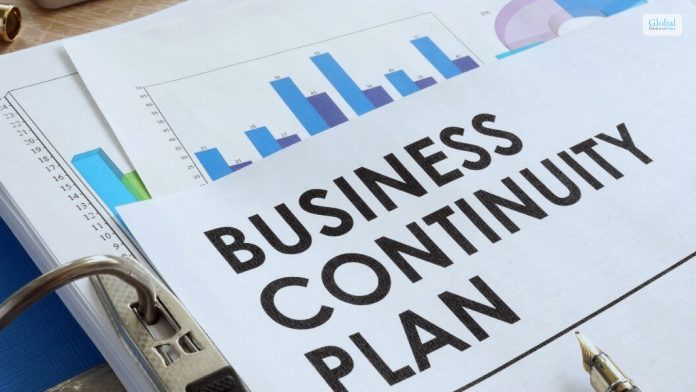What Is A Sales And Purchase Agreement For Business? – Let’s Find Out

A sales and purchase agreement for business is a binding legal contract that consists of conditions both the buyer and seller of a business or property agree upon. In any sale process, it is one of the main legal documents. It basically sets out the elements that are agreed upon in a business deal. It also consists of the number of protections of both parties as well as the legal framework for the completion of the sale.
In this article, you will learn about the sales and purchase agreement (SPA) and some of its general details. Apart from that, you will also learn about how the sales and purchase agreement works for businesses. In addition to that, we will also discuss the major constituents of a sales and purchase agreement that all the parties in a sales process need to consider. Hence, to learn more about the SPA, read on through to the end of the article.
What Is A Sales And Purchase Agreement For Business?

According to Investopedia,
“A sales and purchase agreement (SPA) is a binding legal contract between two parties that obligates a transaction to occur between a buyer and seller. SPAs are typically used for real estate transactions, but they are found in other areas of business. The agreement finalizes the terms and conditions of the sale, and it is the culmination of negotiations between the buyer and the seller.”
In the case of the trading of a product or a service between two parties, there is a need for a legally binding contract that outlines the details of the agreement. This is called the sales and purchase agreement, and both parties (the buyer and the seller) need to sign the agreement contract.
Furthermore, neither of the parties will be able to disobey the contract at any cost. Otherwise, it might lead to legal action. However, it is not an obligation for either of the parties to stay on the deal in question if one of them disagrees with the deal. Once both parties sign the agreement, they will need to follow the terms of the translation.
Some of the essential things that are present in this agreement include – terms and conditions, purchase price, deposits made, limitations, closing date, contingencies, etc.
How Does A Sales And Purchase Agreement (SPA) Work?

According to Wall Street Mojo,
“The sales and purchase agreement of business signifies the culmination of negotiations between the buyer and seller and restricts them from ditching each other. The two parties mutually agree upon it before signing it and making it legally binding. It does, however, require both parties to read the contract carefully and seek legal counsel before deciding whether or not to sign it or request a revision.”
The sales and purchase agreement occurs mostly in real estate deals, stock purchases, mergers & acquisitions, advertising contracts, etc. On the other hand, the constituents of the SPA include its purchase price, settlement date, deposits paid during the negotiation process, limitations, contingencies, and many more.
Apart from that, in such an agreement, both parties in the sales process need to agree to the contract after thoroughly reading it. For this, a business needs to obtain legal advice after signing it and requesting a change.
The agreement, basically, provides protection to the interests of both parties. Apart from that, it also restricts them from working against each other or moving away after signing the deal. This factor helps in minimizing potential conflicts and helps to forecast demand and costs of business.
What Are The Constituents Of An SPA?

According to the Corporate Finance Institute,
“Essentially, the sale and purchase agreement spells out all the details of the transaction so that both parties share the same understanding. Among the terms typically included in the agreement are the purchase price, the closing date, the amount of earnest money that the buyer must submit as a deposit, and the list of items that are and are not included in the sale.”
1. Asset Identification
Here, you will get information about the specific asset that is subject to sale. In the case of a real property, the location and other details of the asset are jotted down.
2. Purchase Price and Conditions
It consists of the exchange price of the transaction in question. Apart from that, the agreement also contains details about how much is already paid and how much is left. It also contains information about the way that the deposit is to be made. It also outlines how the buyer will pay the remaining balance of the transaction.
3. Due Diligence
There is a section in the agreement that asks the buyer to acknowledge their due diligence in the transaction. It also contains the due diligence period, which might contain additional payments.
4. Covenants/Conditions Prior to Close
The agreement also contains the next steps of the transaction process. The conditions here must be in order to make the sales process legally binding. If the parties fail to follow or if there is any inaction, then it amounts to a breach of contract.
5. Damages/Remedies
In some cases, the parties need an explanation regarding what to do in case of damage prior to the sale or during the transit of a product. Hence, this section consists of various levels of damages that can occur to the asset. As per each damage, there is a remedy present.
Final Thoughts
Hope this article was helpful for you in getting to know about the sales and purchase agreement (SPA). A sales and purchase agreement for a business is a legally binding contract that consists of the conditions set by the buyer and seller, which both agree upon. SPAs are mostly common in real estate dealings, in which the item of transaction is large and includes a big amount.
The SPA basically consists of various important information about the sales deal that includes the prices of the asset, the sales price, as well as the payment terms of the sales. It also consists of information about the due diligence period and the agreed-upon conditions. Do you have any more info to add? Share your ideas with us in the comments section below.
Go For The Best And Latest Business Related Articles By Clicking Below!!













